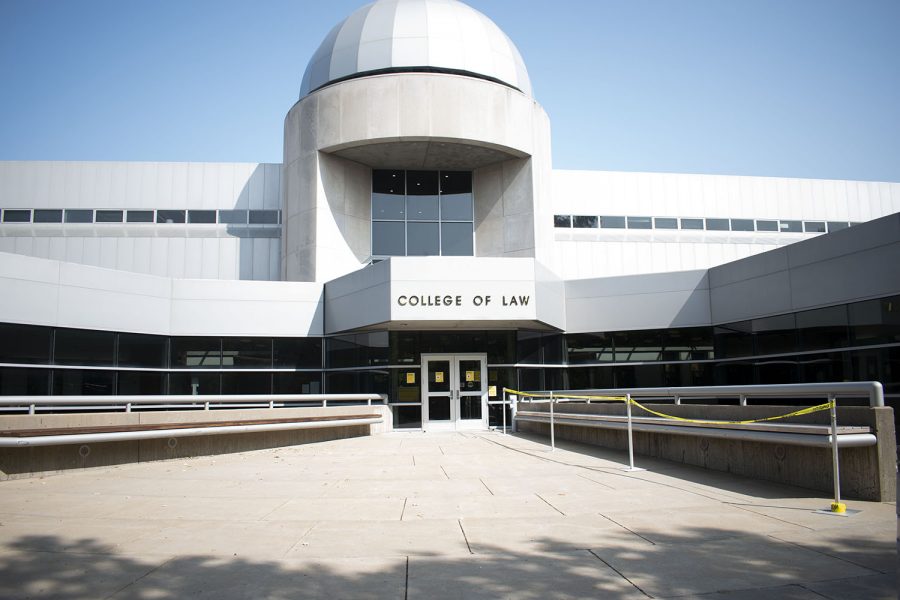The Iowa Supreme Court heard its first case of the 2024 session at the University of Iowa College of Law. The case centers around Linn County Auditor Joel Miller’s accusation that the Iowa Secretary of State failed to revamp Iowa’s voter registration systems prior to the 2020 presidential election.
In 2018, the state’s deputy commissioner of elections notified Iowa counties of their goal to spend roughly $8 million updating Iowa’s voter registration system.
After a year, in July 2019, Miller filed a public records request with Iowa Secretary of State Paul Pate. Miller said more than $1 million of that funding should have been spent in fiscal year 2019, and he asked for copies of all correspondence regarding the issue between Pate’s office, public officials, and vendors.
When Pate’s office did not issue a response within 10 days, which is the requirement for public record requests under Iowa law, Miller filed a complaint with the Iowa Voter Registration Commission where he alleged Pate did not take action to overhaul the system. In his complaint, Miller argued this failure left Iowa’s voting system vulnerable to hackers.
Pate filed a motion requesting the commission dismiss Miller’s complaint, and the commission decided in a 2-1 vote to dismiss Miller’s complaint without a hearing.
Miller appealed to the Polk County District Court who also denied his petition. He appealed once again, which elevated the lawsuit to the Iowa Supreme Court.
During oral argument Friday, Miller’s attorney James Larew said Miller repeatedly sought information regarding his concern about voter registration in Iowa, to which he received no response. Larew also said if there are violations in the future, they will be difficult to prove without information.
Representing the Iowa Voter Registration Commission, Eric Wesson said it is important to consider the sequence of events in this case, as by the time Miller filed for a judicial review, he had the information he was seeking.
Friday’s oral arguments will be the only hearing by the state Supreme Court on this case. The Iowa Supreme Court will reach a decision before June 30, 2025.
RELATED: UI law school ranks in top 50 for graduate career placement
Following the oral arguments, Chief Justice Susan Christensen opened the floor up for questions from UI students. They asked the attorneys how to prepare for oral arguments and career and personal advice from the justices.
When asked about how politics play into being a judge, Christensen said judges must follow the rule of law, even when their heart isn’t behind their decision or they know the public will be upset.
“That is how we operate, and that’s how all the judges in the 99 counties operate,” Christensen said. “I know it’s hard, but that’s what makes it easy to go home at night and put our head on the bed, and wake up the next day. That’s the oath we took.”
Near the end, the justices gave the students life advice and encouraged them to take opportunities, set boundaries, be civil, and connect with their fellow students.
“Don’t let your job own your soul,” Christensen said to the room. “You’re so used to clients coming to you with problems, take it, take it, take it, and then you don’t take time for yourself. Take a step back and say ‘I have to take care of myself.’”
Justice Christopher McDonald advised the students to focus less on immediate progress and more on doing good work and helping people.
Justice David May said it is possible to be zealous and advocate strongly while also being calm, rational, and kind.
“You can fight for your client, you can win, but you can also be an extremely courteous person who is easy to get along with,” May said.



